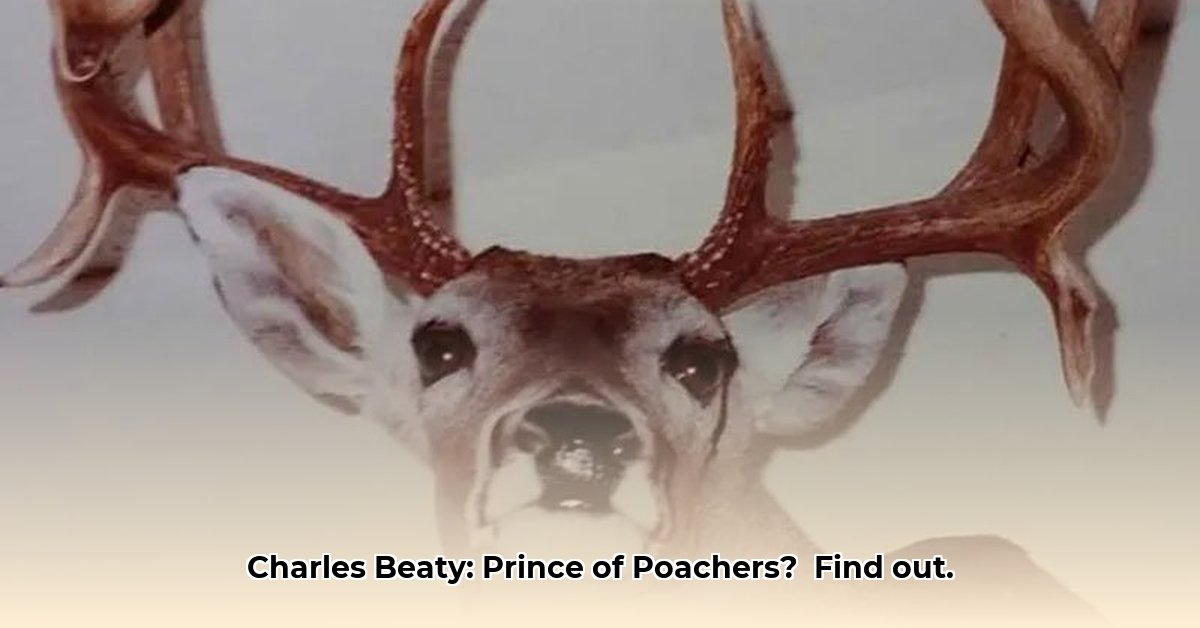
Beyond the Bank Balance: Charles Beaty's Impact on Hunting and Conservation
The story of Charles Beaty, author of the controversial memoir Prince of Poachers, transcends a simple discussion of net worth. While the precise financial gains from his two-decade-long poaching spree remain unclear, the true cost of his actions extends far beyond any monetary value. His tale is a complex tapestry woven with threads of ecological damage, ethical debates within the hunting community, and the power of a compelling—yet controversial—narrative.
Key Takeaways:
- Beaty's poaching significantly impacted whitetail deer populations and disrupted delicate ecosystems.
- His memoir, Prince of Poachers, sparked a heated public debate regarding hunting ethics and conservation.
- The lasting impact of Beaty's actions underscores the need for stronger wildlife protection and responsible hunting practices.
The Elusive Net Worth: More Than Just Money
Pinpointing Charles Beaty's net worth proves challenging. His illegal activities were, by their nature, undeclared, making accurate financial assessment difficult. While some speculate about potential profits from selling poached game, the likely financial gains from his illegal activities were probably modest, possibly covering only expenses directly related to the poaching itself. It's his memoir, Prince of Poachers, that catapulted him into the public eye and likely generated the most significant portion of his income. This raises a crucial question: did the book's success outweigh any financial gains from years of illegal hunting? The answer likely lies in the relatively modest financial returns from his poaching compared to the publicity and potential income from his book.
A Nation Divided: Reactions to Prince of Poachers
Beaty's memoir ignited a fierce public debate. Online forums and social media platforms became battlegrounds. Some lauded Beaty's honesty and boldness, almost admiring his defiance of authority. Others condemned his actions, viewing him as a selfish criminal who undermined ethical hunting practices and damaged wildlife populations. This divisiveness reflects a deeper societal struggle: the ongoing debate surrounding the ethics of hunting itself. Is it a time-honored tradition, or is it inherently problematic? Beaty's story forces a confrontation with these difficult questions.
The Ecological and Social Costs: A Lasting Legacy
The true cost of Beaty's actions extends far beyond dollars and cents. His poaching decimated whitetail deer populations in his targeted areas, disrupting the delicate ecological balance. This disregard for wildlife conservation and regulations resulted in significant lasting damage. But the impact stretches into the hunting community as well. Beaty's story became a catalyst, intensifying the already existing debate over ethical hunting practices and the concept of "fair chase." He stands as a cautionary tale, underscoring the critical need for stronger enforcement, better hunter education, and stricter wildlife management strategies. His actions serve as a stark reminder of the responsibility that accompanies the privilege of hunting.
A Call for Change: Examining Systemic Issues
Beaty's narrative isn't simply a personal story; it highlights significant systemic issues. His actions raise questions about the efficiency of law enforcement in combating poaching. Are current laws and regulations sufficient to deter such crimes? Are enough resources allocated to wildlife protection and enforcement? The success of his book, despite its controversial nature, also spotlights the influence of media narratives in shaping public perception. How can we responsibly report such stories without either glorifying or downplaying illegal activities? These are critical questions that require careful consideration, as Beaty's story serves as a wake-up call for proactive measures in protecting our natural world.
Conclusion: The Enduring Significance of Beaty's Story
Charles Beaty’s legacy extends far beyond the mystery surrounding his net worth. While the precise financial gains from his poaching remain unclear, the profound impact of his actions is undeniable. His story serves as a powerful reminder of the ethical complexities surrounding hunting, the importance of responsible wildlife management, and the ongoing need for vigilance in preserving our natural heritage. It's a narrative that warrants continued examination and discussion, long after the initial controversy subsides. The true value lies not in the monetary aspect, but in the urgent conversation it sparks about conservation and responsible stewardship of our natural world.
https://princeofpoachers.com/blog/the-prince-of-poachers-charles-beatys-epic-saga